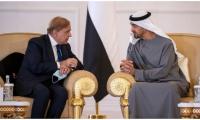ISLAMABAD: After raising the power tariff by Rs3.90 per unit and commitment to abolish corporate sector income tax exemptions to fetch Rs150 billion to Rs200 billion, Pakistan and IMF authorities on Tuesday reached a staff level agreement on revised macroeconomic framework and structural targets after the outbreak of the COVID-19 pandemic and completed the pending second to fifth reviews under the $6 billion Extended Fund Facility (EFF).
The government will have to abolish corporate income tax exemptions and in case of prior action, the government will have to promulgate an ordinance before meeting the IMF's Executive Board. The IMF’s Executive Board is expected to grant approval for releasing around $500 million by next month. While revising the GDP growth target at 1.5 per cent for the current fiscal year against negative 0.4 per cent for the last fiscal, the IMF has made it clear that the details and calendars of ongoing Extended Fund Facility (EFF) will be re-adjusted.
The IMF has combined second to fifth reviews but indicated to release only around $500 million instead of $2.2 billion after approving fourth reviews simultaneously. Does it indicate that the IMF demoted its programme size from $6.4 billion to over $4 billion? The IMF press release is silent over this issue.
Federal Minister for Finance Dr Abdul Hafeez Shaikh said in his tweet that he would like to share that the government of Pakistan has reached a staff level agreement with the IMF. Overcoming the challenges created by the pandemic has required concerted effort. “I would like to thank the prime minister for his guidance, and all my colleagues and the IMF staff for their support. This is a good development for Pakistan.” he added.
The IMF, in its statement, said: “The COVID-19 shock has required a careful recalibration of the macroeconomic policy mix, the reforms calendar, and the EFF review schedule. Against this background, the (Pak) authorities have formulated a package of measures that strike an appropriate balance between supporting the economy, ensuring debt sustainability, and advancing structural reforms. The fiscal strategy remains anchored by the sustainable primary deficit of the FY2021 budget and allows higher-than-expected COVID-related and social spending to minimize the short-term impact on growth. The targets are supported by careful spending management and revenue measures including reforms of corporate taxation to make it more transparent. The power sector’s strategy aims at financial viability, through management improvements, cost reductions, and adjustments in tariffs and subsidies calibrated to attenuate social and sectoral impacts”.
According to the IMF statement, the IMF staff and the Pakistani authorities have reached an agreement on a package of measures to complete second to fifth reviews of the authorities’ reform programme supported by the IMF Extended Fund Facility (EFF). The package strikes an appropriate balance between supporting the economy, ensuring debt sustainability and advancing structural reforms.
The COVID-19 shock temporarily disrupted Pakistan’s progress under the EFF-supported programme. However, the authorities policies and allowing higher than expected COVID-related social spending have been critical in supporting the economy and saving lives and households. The Pakistani authorities remain committed to ambitious policy actions and structural reforms to strengthen economic resilience, advance sustainable growth, and achieve the EFF’s medium-term objectives.
An International Monetary Fund (IMF) team led by Ernesto Ramirez Rigo concluded virtual discussions with the Pakistani authorities and reached a staff-level agreement on the second to fifth reviews of the authorities reform programme supported by the IMF 39-month Extended Fund Facility (EFF) arrangement for the amount of SDR 4,268 million (about $6 billion. This agreement is subject to the approval of the IMF’s Executive Board. The reviews’ completion would release around $500 million. At the end of the discussions, Ramirez Rigo issued the following statement:
“The policies and reforms implemented by the Pakistani authorities prior to the COVID-19 shock had started to reduce economic imbalances and set the conditions for improving economic performance. Most of the targets under the EFF-supported programme were on track to be met. However, the pandemic disrupted these improvements and required a shift in the authorities priorities towards saving lives and supporting households and businesses. To a large extent, the authorities’ response was enabled by the fiscal and monetary policy gains attained in the first nine months of FY2020. Aside from health containment measures, this included a temporary fiscal stimulus, a large expansion of the social safety net, monetary policy support and targeted financial initiatives. These were supported by sizeable emergency financing from the international community, including from the Fund’s Rapid Financing Instrument (RFI).
“As a result of the authorities actions, the COVID-19 first wave started to abate over the 2020 summer and the impact on the economy was significantly reduced. The external current account improved, due to stronger-than-expected remittances, import compression and a mild export recovery. The high-frequency economic data also started to point to a recovery. Considering these improvements, the economy is projected to expand by 1.5 per cent in FY2021 from -0.4 per cent in FY2020. Still, with the COVID-19 second wave unfolding around the world, the outlook is subject to a high level of uncertainty and downside risks.
“The State Bank of Pakistan (SBP)’s monetary and exchange rate policies have served Pakistan well and were critical in helping to navigate the COVID-19 shock. The strengthened international reserves’ position since the start of the programme with gross reserves almost doubling to $13 billion until January 2021 and net international reserves (NIR) increasing by over $9 billion until December 2020 and the shock absorption displayed by the market-based exchange rate, allowed the SBP to preemptively proceed to a large easing of monetary policy, and a sizeable expansion of refinancing facilities. The banking system remains healthy, but it will be important for the SBP to continue to remain vigilant and prevent possible financial stability stress as the temporary support is phased out. International reserves are set to improve further reflecting current account developments, the EFF resumption and international partners’ support.
“The authorities are moving steadfastly on a number of other important reforms, including on strengthening regulatory agencies’ legal frameworks (NEPRA and OGRA Acts), consolidating SBP’s autonomy (SBP Act), and improving state-owned enterprises (SOE) management (SOE Law). In addition, they have conducted a triage of SOE, and are moving forward with the audits of contracts awarded for COVID-19-related spending. They continue to enhance the effectiveness of their anti-money laundering steps/counter-financing of terrorism (AML/CFT) framework and progress in completing their action plan with the Financial Action Task Force (FATF). The IMF team would like to thank the Pakistani authorities for the constructive and candid discussions.”
Saad was of the view that the battle of politics should be fought solely through political means
KP govt decided to develop gemstone business as a formal export sector and cluster at the Namak Mandi would be...
Khyber Pakhtunkhwa Minister for Higher Education, Archives, and Libraries, Meena Khan Afridi. — APP FilePESHAWAR:...
Vehicles and horse carts passing through flood water at Bara Bazar area on Khuwani bridge after heavy rain in Peshawar...
Amid the failure to revive the cash-bleeding PIA, government is left with no other option but to sell it to any...
Picture showing the Silver Jubilee Gate of the University of Karachi. — APP File KARACHI: The University of Karachi...







